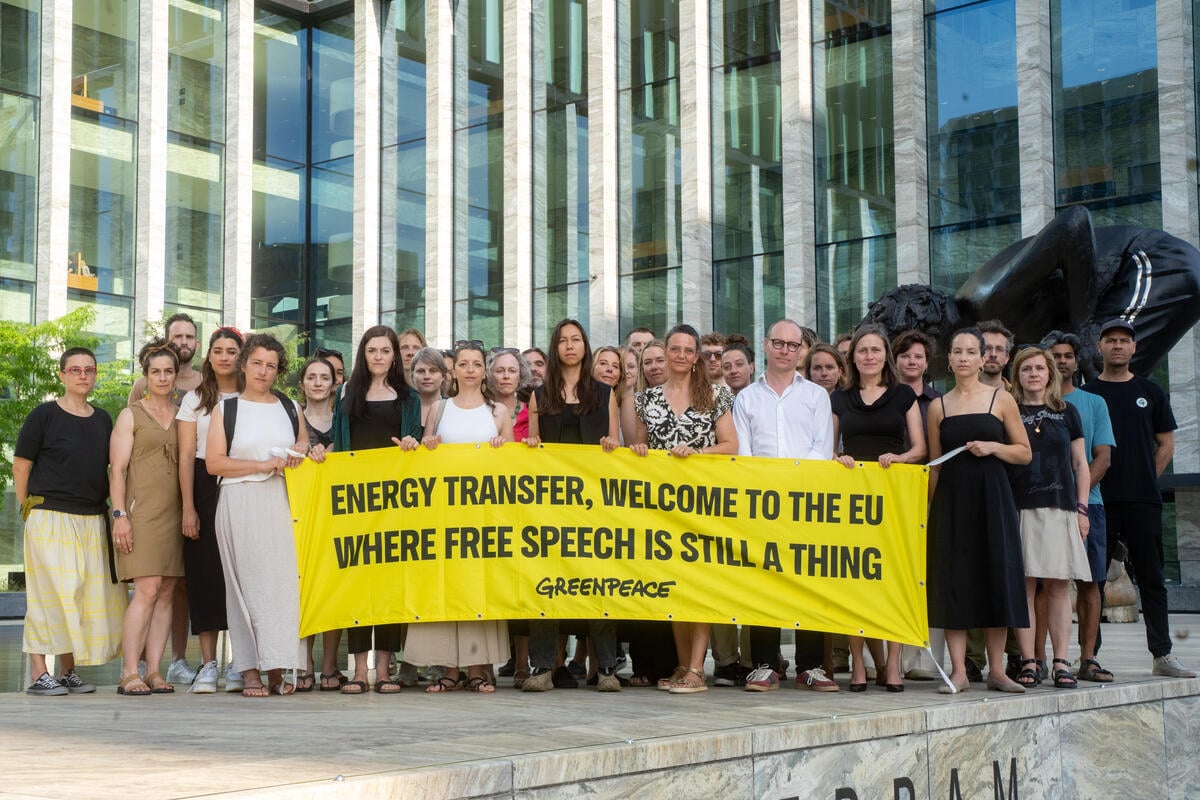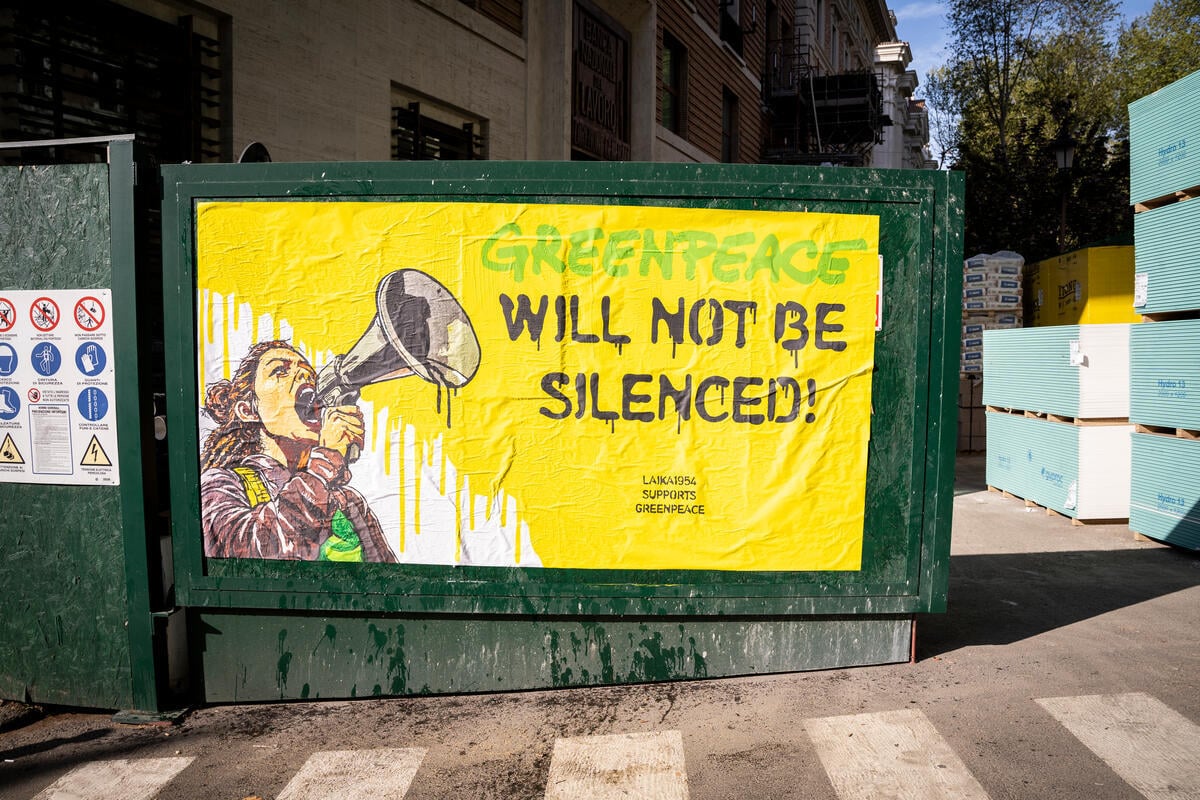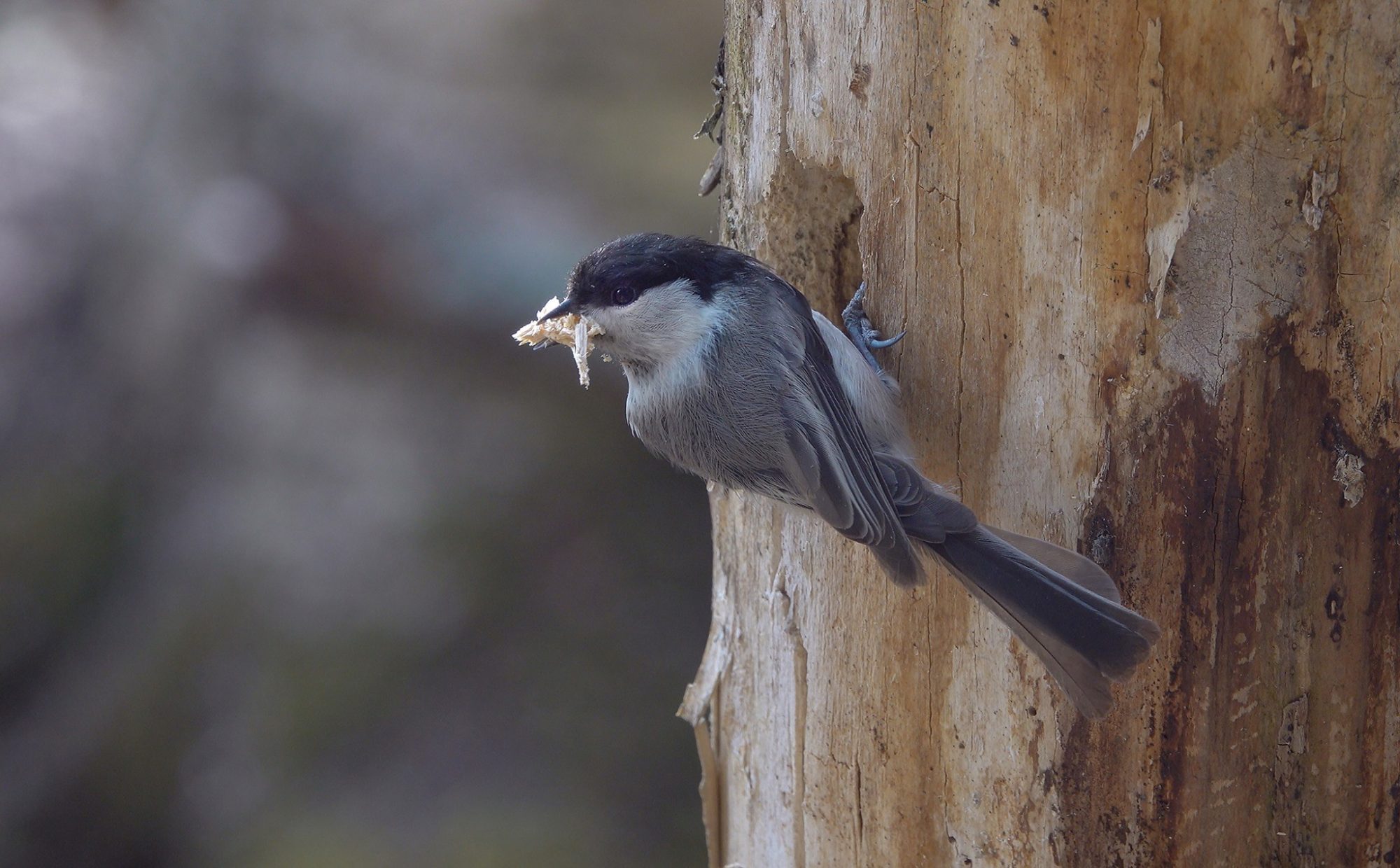More than 30 Greenpeace activists have closed the main gate of the Kemi pulp mill, the train track and the bridge leading to the mill area. A five-meter tall owl made from re-used cardboard has been set up at the main gate to represent the forest species that are becoming endangered due to the forest industry. In addition, eight activists have climbed onto the cranes used to load the wood and hung a banner on one of them that says ”nature loss”. Activists demand Metsä Group and the Finnish forest industry to adapt its operations to the limits of nature and climate.

”I am here because I’m sad and disappointed. Finland’s nature is being wasted into pulp: the inhabitants of our forests, such as the Eurasian pygmy owl and willow tit, are disappearing just so we can get more cardboard and disposable products. It’s hard to find old forests anymore, and loggings are being revealed even in the last standing old forests,” says Finnish Greenpeace activist Ida Korhonen, present at the demonstration.
Activists have arrived in Kemi from Finland, Sweden, Denmark, Norway, Poland, the Netherlands and Germany. The Finnish forest industry avoids its responsibility in stopping the loss of nature and is short-sightedly lobbying for its short-term interests in the EU against the joint European efforts to stop the loss of biodiversity. This has caused environmental defenders to arrive from all over Europe.
The Finnish forest industry is heavily dependent on exports. Half of all Finnish pulp is exported but even the pulp used for production in Finland ends up as export. 98% of the paperboard, for instance, used in packaging, is exported.
The main export market of the Finnish forest industry is Germany with 12% of the whole forest industry export. More than half of the export market is in the European Union, which should be a reason to respect the EU decisions such as the Biodiversity Strategy which dictates the goal of stopping biodiversity loss by the year of 2030 and protecting 30 % of overall European biomes, 10 % of them strictly.
Metsä Group’s new pulp mill in Kemi increases logging in the northernmost forests of both Finland and Sweden. Part of the area is also a home to the Indigenous Sami people. The mill is the largest pulp mill in the entire northern hemisphere, which when operating at full capacity uses 7.6 million cubic meters of wood annually. In this case, an average of 243 railcar loads and 180 truckloads of wood is brought to the factory every day. According to researchers, logging should be reduced in order to protect nature and the climate, because excessive logging has impoverished Finland’s nature and collapsed the forests’ carbon sink.
”The forest industry is compromising the European and global efforts to stop the loss of biodiversity and the climate crisis. It would also be fair to forestry workers and entrepreneurs if the big pulp companies took nature loss and the climate crisis seriously and made their operations truly sustainable. Adapting to the limits of nature is a prerequisite for the future of the entire industry”, says forest expert Oona Käyhkö from Greenpeace Nordic.
Greenpeace demands that the forest industry reduces logging and the use of wood. This could happen by increasing the degree of product processing and producing longer-lasting and more valuable products than cardboard and disposable products. The most harmful practices for nature and the climate, such as buying wood from valuable forests and clear cutting peatlands, must also be stopped. Forestry companies must also take responsibility for the nature loss they cause by protecting more valuable forests at their own expense. Finnish forest companies are needed to defend strong European legislation, not to water it down.
Old-grown forests in danger – forest companies have the power to stop nature loss
Forestry companies talk highly of their sustainable wood procurement. Even so, Metsä Group planned loggings in the centuries-old old-growth forests in Salla in northern Finland. Greenpeace pointed out the natural state of the forests to the company, after which the company announced the cancellation of logging at one location and is investigating the matter concerning another. However, Metsä Group buys wood chips for pulp production from Pölkky Oy that logs in the natural forests of the same area.
”The case is just an example of a bigger problem. The ability of forest companies to avoid logging in natural forests cannot be trusted at the moment. It is unsustainable that environmental organizations and citizens have to monitor the activities of forest companies one logging at a time,” says forest expert Oona Käyhkö.
In addition to Metsä Group, the pulp company UPM has been caught logging in natural forests. In addition, the forest industry purchases wood from the state-owned enterprise Metsähallitus, which has several logging plans in forests of conservation value in different parts of Finland.
”Intense forestry is the biggest cause of nature loss in Finland. The enormous sustainability problem of the forest industry cannot be solved without extensive and science-based additional protection. Forest companies would have the opportunity to solve the situation by quitting their harmful lobbying against nature protection in the EU demanding comprehensive protection of old and natural forests, by refraining from buying wood from valuable forests and by protecting the forest themselves,” continues Käyhkö.
The peaceful demonstration was carried out ensuring the safety of activists and pulp mill workers.



